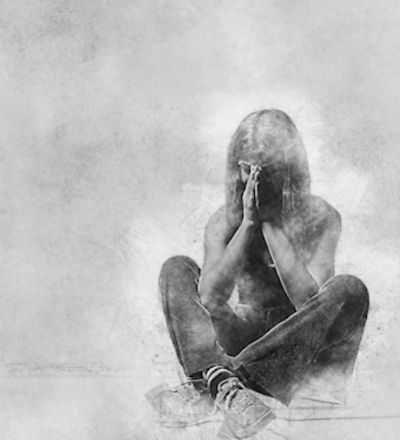Donate
These reports represent hundreds of hours of research by the Unsilenced Investigative Research Team. As you review this report, please consider donating. Your contribution will help us continue our work advocating for survivors and youth. Every donation makes an impact, no matter the size. Thank you for your support!
Completed by:
The Unsilenced Investigative Research Team
The Troubled Teen Industry in Massachusetts
Impact Report
2022
Impact Report
2022
Introduction
The ‘troubled teen’ industry is a network of residential programs that claim to provide treatment for the behavioral and developmental needs of youth. The industry’s lack of transparency and accountability has led to widespread abuse of youth, resulting in hospitalizations, prolonged trauma and death.
Today, there are an estimated 120,000 – 200,000 minors in residential programs across the United States. These youth are placed each year by state child welfare agencies, juvenile justice courts, mental health providers, refugee resettlement agencies, school districts’ individualized education programs, and by parents.
Many of these youth have trauma histories, which are only exacerbated by being removed from their communities and institutionalized. Youth with lived experience describe these programs as being carceral, harsh, and abusive.
An estimated $23 billion dollars of public funds annually are used to place youth in residential programs. Daily rates for residential treatment ranges from $250-$800, costing up to $292,000 per year, per child.
It is overwhelmingly clear that our communities and agencies are over-relying on residential placements that are negatively impacting the youth they serve.
Introduction
The ‘troubled teen’ industry is a network of residential programs that claim to provide treatment for the behavioral and developmental needs of youth. The industry’s lack of transparency and accountability has led to widespread abuse of youth, resulting in hospitalizations, prolonged trauma and death.
Today, there are an estimated 120,000 – 200,000 minors in residential programs across the United States. These youth are placed each year by state child welfare agencies, juvenile justice courts, mental health providers, refugee resettlement agencies, school districts’ individualized education programs, and by parents.
Many of these youth have trauma histories, which are only exacerbated by being removed from their communities and institutionalized. Youth with lived experience describe these programs as being carceral, harsh, and abusive.
An estimated $23 billion dollars of public funds annually are used to place youth in residential programs. Daily rates for residential treatment ranges from $250-$800, costing up to $292,000 per year, per child.
It is overwhelmingly clear that our communities and agencies are over-relying on residential placements that are negatively impacting the youth they serve.

Massachusetts Statistics
$249+
Million Dollars
Massachusetts spends every year placing youth in Residential Facilities despite evidence indicating that these facilities are ineffective.
$330
Per Day Per Child
Massachusetts pays facilities on average and advocates report that the state spends up to $700 per day for children with complex needs.
3,645
Children Under 12
placed in residential facilities through Child Welfare programs in 2019
288
Juvenile Justice Youth
placed in residential facilities through Juvenile Justice programs in 2019
- 135 minors were committed to a residential facility as part of a court ordered disposition
- 126 minors were detained in a residential facility while awaiting a court hearing, adjudication, disposition or placement elsewhere
- 24 minors were voluntarily admitted to a residential facility in lieu of adjudication as part of a diversion agreement

Massachusetts Statistics
$249+
Million Dollars
Massachusetts spends every year placing youth in Residential Facilities despite evidence indicating that these facilities are ineffective.
$330
Per Day Per Child
Massachusetts pays facilities on average and advocates report that the state spends up to $700 per day for children with complex needs.
3,645
Children Under 12
placed in residential facilities through Child Welfare programs in 2019
288
Juvenile Justice Youth
placed in residential facilities through Juvenile Justice programs in 2019
- 135 minors were committed to a residential facility as part of a court ordered disposition
- 126 minors were detained in a residential facility while awaiting a court hearing, adjudication, disposition or placement elsewhere
- 24 minors were voluntarily admitted to a residential facility in lieu of adjudication as part of a diversion agreement
A Massachusetts Problem
A team of researchers reviewed 230 studies of residential treatment facilities from around the nation and found there was no evidence that they were effective.
In 2019, Massachusetts was home to 1,352,800 minors, including 10,382 minors in foster care.
Massachusetts has 254 Licensed Residential Facilities with a total capacity of 5084 minors.
The facility types with the highest capacity for housing minors in Massachusetts are:
- 173 Group Homes with a capacity of 2746
- 18 Residential Boarding Schools with a capacity of 1125 minors
- 20 Psychiatric Hospitals with a capacity of 402 minors
Residential Facilities in Massachusetts cost the State and Federal governments millions annually
Youth Residential Services Department Spending DCF
- Residential Schools $155,628,209 for 1,572 Beds
- FNGH-Family Networks Group Homes FNST-Family Network STARR $40,800,289 for 400 beds
- RESGTeen Living Programs $9,104,970 for 172 Beds
- DMH Individualized Support, Residential $4,318,145 for 91 Beds
- Child/Adolescent Residential Service $22,745,098 for 427
- Intensive Residential Treatment $15,256,911 for 85 Beds
- Clinically Intensive Residential Treatment $1,936,286 for 12 Beds
- Total of $249,789,908 for 2,759 Daily Units of Service
- Intensive Treatment Residence – $548.18-$562.10
- Community Treatment Residence – $378.09-$388.52
- Group Home Intensive – $354.02
- Group Home – $297.74
- Pre-independent Living – $255.54
- Intensive Home-Based Therapeutic Care – $148.40
- Intensive Residential Treatment Program – $283,502-$288,000
- Clinically Intensive Residential Treatment – $222,265
- Therapeutic Group Care – 6-12 beds $73,241-$125,901

Illustration by Spencer Holladay, USA Today Network; Getty Images
“Many kids don’t get help. Others never needed institutional care in the first place.”
Fred Clasen-Kelly, Amritpal Kaur Sandhu-Longoria, Rachel Berry, Brad Zinn, Kristen Johnson, Brian Gordon
The Fayetteville Observer
Current Oversight
The Office of the State Auditor conducted a performance audit of the Department of Early Education and Care (EEC) for the period July 1, 2016 through June 30, 2018. Below is a summary of the findings:
- EEC did not always review or initiate investigations of reports of suspected abuse and neglect of children in its licensed programs.
- EEC did not ensure that all required BRCs were performed for employees at its licensed group care programs.
- EEC did not consistently meet its deadlines for group care program licensing visits.
- EEC did not always complete its licensed group care program investigations by established due dates.
As of June 30, 2018, EEC had a total of 174 employees.
It had state appropriations of:
- $556 million in fiscal year 2017
- $576.8 million in fiscal year 2018
As well as federal grant appropriations of:
- $23.1 million in fiscal year 2017
- $16.3 million in fiscal year 2018
The Department of Early Education and Care (DEEC) is responsible for licensing Youth Residential Treatment Center, group homes & Residential Boarding Schools
The Department of Mental Health (DMH) is responsible for licensing Intensive Youth Residential TreatmentIntensive & Psychiatric Hospitals
The Department of Youth Services (DYS) is the Juvenile Justice agency for the Commonwealth of Massachusetts
Group Care Program
A program or facility that provides care and custody for one or more children by anyone other than a relative by blood, marriage or adoption on a regular 24-hour a day, residential basis. Group care program includes but is not limited to
-
- programs serving teen parents younger than 16 years old;
- transition to independent living programs;
- private residential schools that provide special services to children with special needs in which children with special needs constitute 30% or more of the school’s population;
- group residences or group homes 606 CMR 3.00
Residential Boarding Schools
Approved Private Special Education School or Approved Program shall mean a private day or residential school, within or outside Massachusetts, that has applied to, and received approval from, the Department according to the requirements specified in 603 CMR 28.09.
Approved Public Special Education School
Shall mean a program operated by a public school or an educational collaborative providing full day or residential special education services to eligible students in a facility serving primarily students with disabilities according to the requirements specified in 603 CMR 28.09.
Psychiatric Hospitals
A department-operated hospital, community mental health center with inpatient unit, or psychiatric unit within a public health hospital; a Department-licensed psychiatric hospital; a Department-licensed psychiatric unit within a general hospital; or an intensive residential treatment program for adolescents that is either designated as a facility under the control of the Department or licensed by the Department – 104 CMR 27.00
Transitional Independent Living
Programs for clients 16 through 20 years of age who are preparing to live independently upon release or who have been determined to need more transitional and community support services as they return to the community. The programs provide monitoring and supervision, as well as individualized services that reduce risk and/or need and develop independent living skills and experiences in the community and in community-based support systems – 106 CMR 3
Community Based Acute Treatment (CBAT) Program
A residential service that provides clients with moderate behavioral health needs a therapeutic milieu for receiving individualized treatment, rehabilitation, training in life skills, and supportive services to promote permanency in a family-based environment or, as developmentally appropriate, community living with permanency.
Secure Placement
Any Department or Provider operated residential program which may use hardware or staff security; also known as a “facility.” – 109 CMR 2.0
Staff-Secure Placement
Placement in a Department or Provider operated residential program that is characterized by unlocked entrances and exits where staff personnel provide the primary security to prevent a youth from physically leaving the program without the approval of the Department – 109 CMR 2.0
Teen Parenting Program
Programs designed to help teens develop a support system for themselves and their children including ensuring continuing contact with the baby’s father, teen’s parent(s), family members, paternal family members, and other supports through a residential setting – 606 CMR 3.00
Intensive Residential Treatment Programs (IRTP)
The IRTPs are locked, clinically intensive treatment programs for youth ages 13-18. They offer an array of specialized and individualized clinical services, transportation, and an on-site DESE-contracted school – 104 CMR 27.03
Clinically Intensive Residential Treatment (CIRT)
The CIRT provides intensive clinical services for children ages 6-12. It offers an array of specialized and individualized clinical services, transportation, and an on-site school contracted by the Department of Education (DESE). – 104 CMR 27.03
Emergency Residence
A residential service, available for immediate 24/7 access, for clients requiring placement in a therapeutic milieu providing individualized treatment, rehabilitation, training in life skills, and supportive services to promote a transition from the emergency setting to a treatment setting. – 606 CMR 3
Emergency Residence
A residential service, available for immediate 24/7 access, for clients requiring placement in a therapeutic milieu providing individualized treatment, rehabilitation, training in life skills, and supportive services to promote a transition from the emergency setting to a treatment setting. – 606 CMR 3
Abuse and Neglect
Youth residing in Residential Facilities in Massachusetts are at risk for abuse, neglect, and long-term harm.
Massachusetts determined that at least 71 Group Home and Residential Facility Staff Members and 46 Foster Parents caused or knowingly allowed the maltreatment of a child in 2020
Trauma Caused by Separation of Children from Parents
Research has been conducted that indicates that children are seriously harmed when separated from their parents and communities.
Located in Massachusetts, the Judge Rotenberg Center is the only facility in the country to use skin shocks as aversive “therapy.”
Media Coverage
- May 2nd, 2019 Judge Rotenberg Center tortures its disabled students The Miscellany News Jesser Horowitz
- July 10th, 2020 Universal Health Services, Inc. And Related Entities To Pay $122 Million To Settle False Claims Act Allegations Relating To Medically Unnecessary Inpatient Behavioral Health Services And Illegal Kickbacks The United States Department of Justice
- July 13th, 2020 Universal Health Services to pay more than $127m to end allegations of improper billing The Boston Globe Larry Edelman
- Dec 23rd, 2020 Almost five years after abuse reports shut Eagleton School, some plaintiffs have been paid The Berkshire Eagle Heather Bellow
- Mar 27th, 2021 Publius: The Bratter matter The Berkshire Edge Alan Chartock
- Dec 3rd, 2021 Former students of Great Barrington prep school describe it as ‘torture chamber’ The Berkshire Eagle Heather Bellow
Additional Information
Unsilenced Program Database: Massachusetts Programs
Contact: info@unsilenced.org
The information provided within UnSilenced.org is for general informational purposes only. All information is provided in good faith. However, we do not warrant, endorse, guarantee, or assume responsibility for the accuracy or reliability of any information offered by third-party posters, testimonials, comments, or submissions. Most information posted reflects the opinion of the writer and does not directly reflect the views, or positions of the owners of UnSilenced.org
Read More
